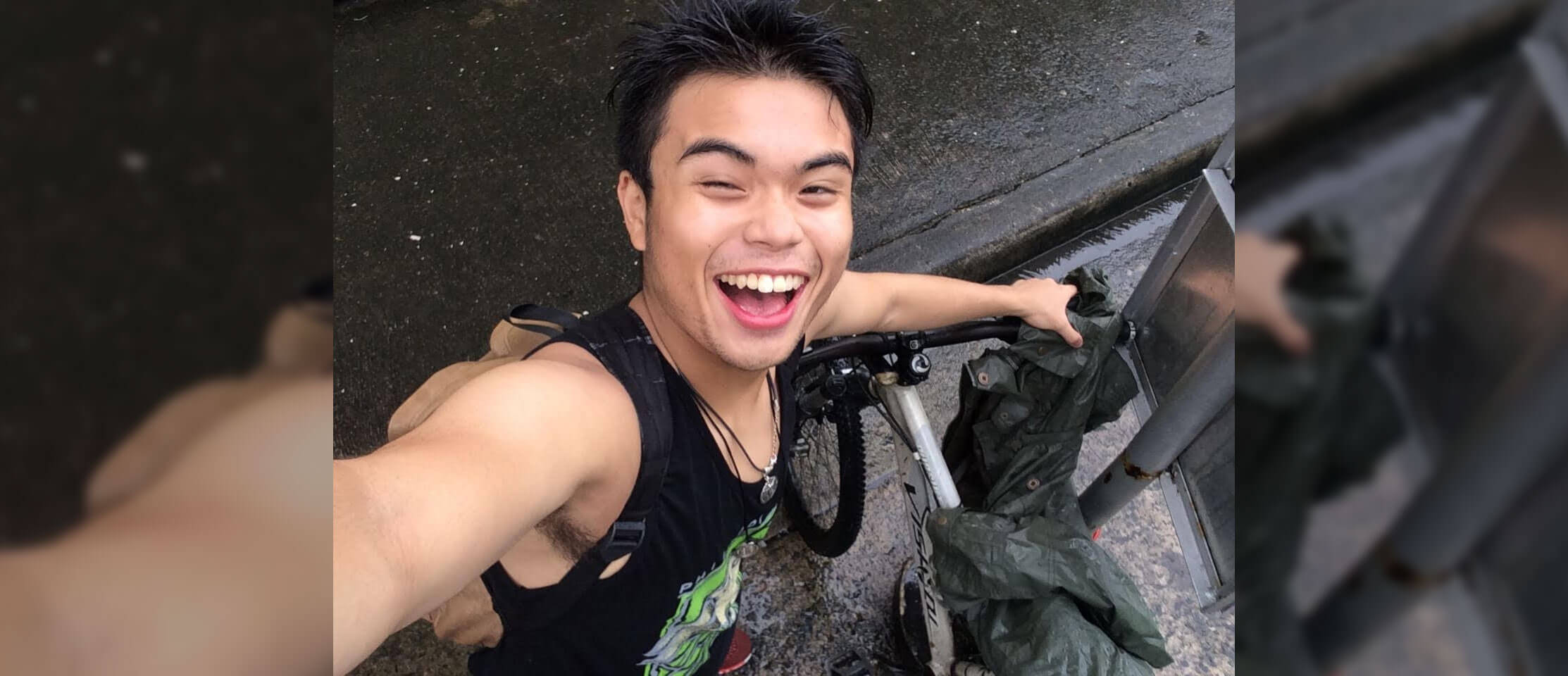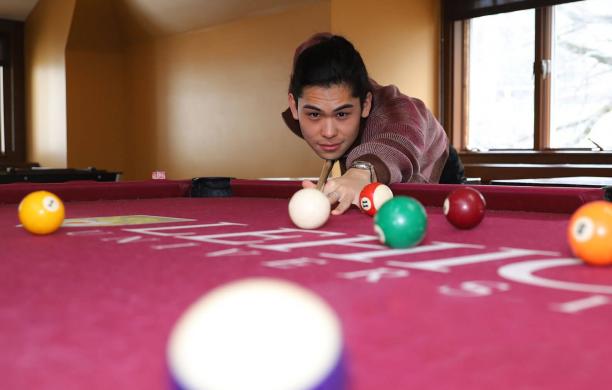A kid on a ragtag bicycle carries letters folded into envelopes that he plans to deliver to homes, businesses, and government offices. Each missive contains the same story and ask. In a nutshell, it says: Help me! I have been accepted to a top notch American university, but I need help affording the airfare in order to alter the trajectory of my family’s future.
Adrian Suarez ’22 ’23G is that kid, and he delivered 1,000 of those letters in order to scrape together the funds to fly from Manilla, Philippines, to attend Lehigh.
But rewind a few years to when he learned that he needed to become the stabilizing force in his family to alter his reality for generations.
At age 13, he heard that his father died. Because his dad lived in the United States, Suarez didn’t really know him.
Suarez grew up half a world away in a rough neighborhood where he lived with his mom and a cousin that his mom raised as his sister. One day a letter arrived in the mail from the U.S. Social Security Administration, letting him know of his eligibility to earn his father’s death benefit. All Suarez had to do was travel to the U.S. twice a year and stay a full month during each visit. The U.S. government would cover travel costs if he could find a place to live.
His father’s brother let him join nine other family members in a tiny one-story house in San Jose, California. Speaking little English, Suarez made the trek and fended for himself. For five years, he followed this routine – five months at home, one month with strangers.
“It was here that I first learned English and then learned about college,” says Suarez. “Having navigated spaces plagued by chaos and disruption, I knew that college was where I could become a productive individual.”
To get there meant work. Suarez rolled up his sleeves.
He printed SAT study guides he found on the Internet and through “brute force” studied on his own, saved up, and took the exam. By this time, he was a scholar at a private Catholic school in Manilla: Don Bosco Technical College. There he took a copy of the Princeton Review and looked at the top colleges and universities for financial aid. He applied to the top 20.
Lehigh happened to be on the list.
“The financial aid package was going to make the decision for me … if I got accepted,” he says. He hit double with Lehigh: acceptance and a full-tuition scholarship.
While he worried about affording room and board, that worry was secondary to getting to the U.S.

That’s when he wrote letters, shared them with wealthy donors at his school, and then hopped on a rickety bike to deliver those letters anywhere a person might take up his cause.
It worked.
“I arrived on campus with two bags and a mission: get good grades and get a job,” says Suarez. “I could see that my story and background didn’t fit in here, but Lehigh was a fresh start for me. It was like I won the lottery, and I had a chance to cash in on an education that would alter my family for generations.”
All first-year Lehigh students are required to attend five campus events by week ten. By the deadline, Suarez attended over 100.
“I didn’t know anybody and wanted to plug in and change that,” he says.
He formed a range of friendships and mentorships at a variety of offices on campus and got a job at the Catholic Center … among other places on campus.
As he networked, he realized that he could become a resident advisor (RA) in order to remove the burden of debt for room and board. He applied to the program and became a Gryphon RA his sophomore year.
He studied a range of subjects, including theater, economics, and global studies.
“I wasn’t thinking like a businessman when I majored in theater,” he says. “Only now, as a presidential scholar in the masters of business analytics program, am I seeing how to combine theatrics with business presentations and get paid a whole lot better.”
With his liberal arts approach, Suarez did plug into key programs as honor society president, Mountain Top researcher, Global Village participant, and Eckardt Scholar. He graduated summa cum laude.
He is now sitting on three job offers at notable companies along the East Coast.
Each one advances him along the trajectory he started as a teen.
“Being first generation at Lehigh doesn’t mean I am last generation. At some point in every family, whether now, decades ago, or centuries ago, someone had to come to this country, face the hardships, make the sacrifices, live with compromise, and suffer the traumas and shames. I am that person for my family, for my widowed mom, for my family back home, for my future sons and daughters, and, if I am lucky enough, for my future grandchildren,” says Suarez.
“I am being resilient and resourceful, so they don’t have to write solicitation letters and become an economic refugee, like I have been, as I fled something difficult and benefited over and over from my own hard work and the generosity of others. I have seen other first-generation students not make it. I say to them, it is not easy to figure this out and constantly face problems and seek solutions. I know I got lucky. I placed some bets that I just happened to win. But I know the game is just beginning, and I’m just starting to learn how to play the long game of wealth building.”
test
Discover More
